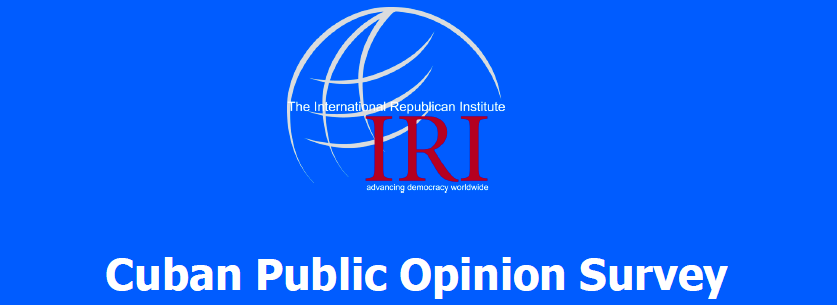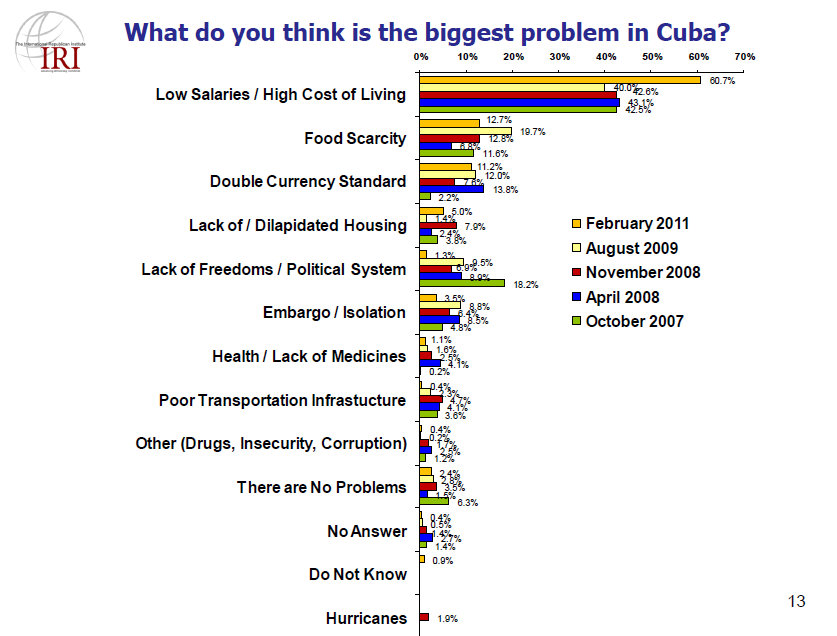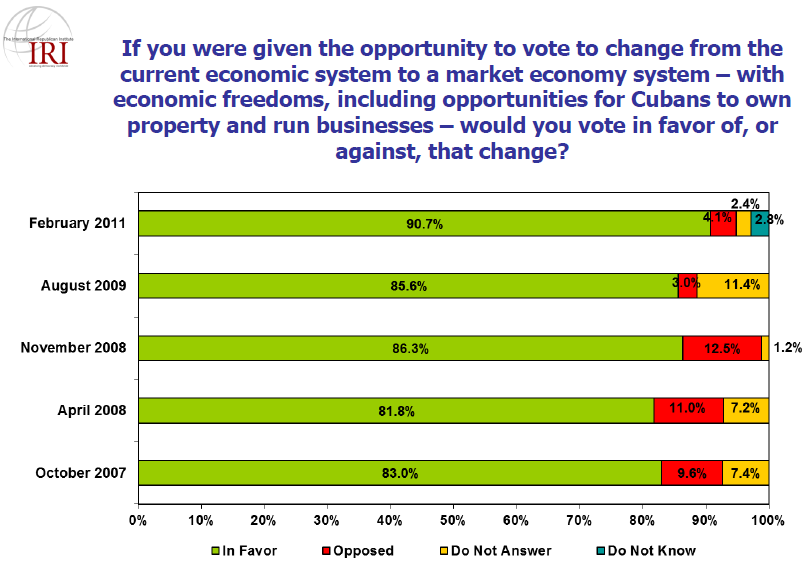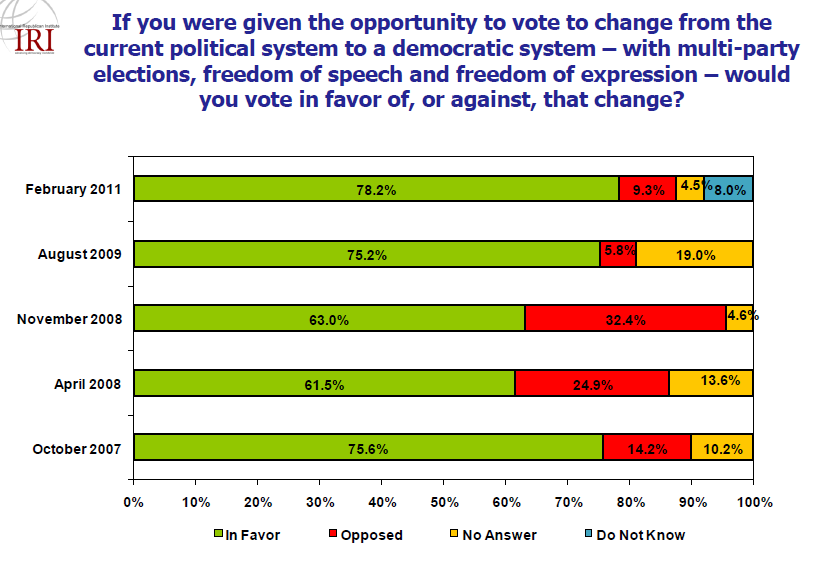
The International Republican Institute has just published the results of a public opinion survey taken in Cuba, the fifth such survey since 2007. A series of questions were asked concerning general perspectives on Cuba, attitudes towards political and economic change, and access to information technology. Some of the same questions have been asked since 2007 providing some interesting comparisons over time.
The complete survey is located here: Cuban Public Opinion Survey, 2011, Int’n’l Republican Institute
The survey methodology was as follows
- Dates of Interviewing: The fieldwork was conducted Jan, 28 – Feb. 10, 2011.
- Data Collection Method: Stratified-intercept methodology based on personal, face-to-face interviews in Cuba.
- Sample Size: 463 Cuban adults (age 18 and older).
- Sample: Interviews were conducted in twelve (12) Cuban provinces
- The sample was stratified by province, then by sub-units within each province. Interviewees were allocated by gender and age quotas. The final selection of each interviewee was random.
- Respondents: The sample selection for province, gender and age are based on the last available Cuban census data, released in 2002.
- Maximum Sample Margin of Error: Margin of error of ± five percent for a 95 percent level of confidence.
There are a number of interesting results of the survey. Here are a couple.
1. What do you think is the biggest problem in Cuba? 60.7% said that Low Salaries / High Cost of Living were the most serious, up from 40% in 2009, while 12.7% said that food scarcity was the most serious. 1% of the respondents stated that the Lack of Freedoms / Political System was the most serious. This suggests that Raul Castro’s priority on the economy is not misplaced.
2. If you were given the opportunity to vote to change from the current economic system to a market economy system – with economic freedoms, including opportunities for Cubans to own property and run businesses – would you vote in favor of, or against, that change? 90.7 of the respondents were in favor. The prospective pro-market reforms of the Sixth Congress would appear to be in line with public opinion.
3. Do you believe the current government will succeed in solving Cuba’s biggest problem in the next few years? 77% say no, a higher proportion than in any IRI survey since 2007.
4. If you were given the opportunity to vote to change from the current political system to a democratic system – with multi-party elections, freedom of speech and freedom of expression – would you vote in favor of, or against, that change? 78.2% were in favor.
5. Do you regularly use a cellular phone? 25.3% said yes, up from 10% in 2007.
Presumably the Government of Cuba conducts similar studies but with differently worded questions that produce results somewhat more congenial to the status quo.
But the results of the IRI surveys certainly must be of deep concern to the Government and the Party.





